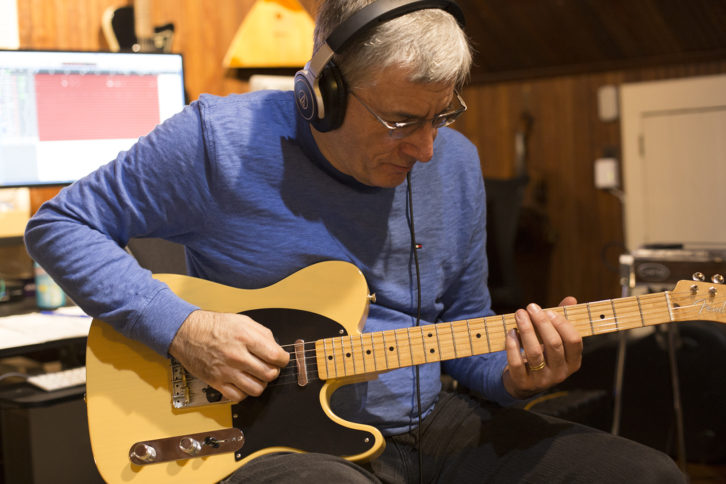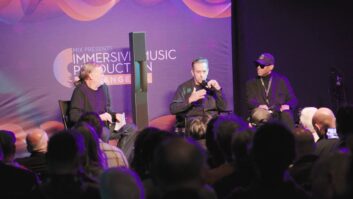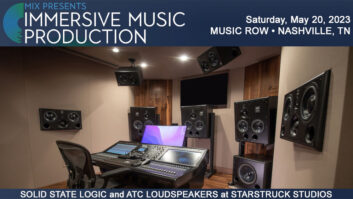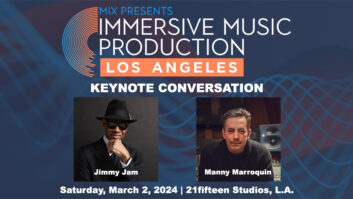Censorship of music and musicians is alive and well in the world. Just last week I read a disturbing article in the Washington Post about a musician in Iran named Mehdi Rajabian, arrested by the Iranian government for the egregious crime of “working with female artists.”

Back in May, the New York Times reported that Polish rock star Kazik Staszewski’s song “Your Pain Is Better Than Mine” opened at Number One on the music chart of Radio Three, a state-run broadcast outlet. The song, which was critical of a prominent Polish government official, then abruptly disappeared from the Radio Three website—along with the entire chart.
A government censoring music is nothing new. In heavily authoritarian states such as North Korea, the government controls all publicly played music. Until 2015, the North Korean government didn’t let foreigners perform there, and rock music was banned. So I was surprised to discover that Kim Jong-un’s government allowed the Eastern-European avant-garde band Laibach to play a show in Pyongyang that year.
A “rock” band playing in North Korea seems like a breakthrough, right? Well, not exactly. Although the band did play a few of its own songs, its set consisted mainly of covers from that wellspring of rock ’n’ roll, The Sound of Music.
And it’s not just heavy-handed regimes that engage in censorship of the arts. Did you know that until six years ago, it was illegal to dance in Japan? The Japanese dance ban, instituted initially during the U.S. occupation after World War II, somehow stayed in place up until 2015.
Read more Mix Blog Studio: A Nice Surprise in Subscription Support.
In the 1970s, ‘80s and ‘90s, it was basically ignored. But in the 2000s came a significant crackdown. According to CNN: In what became known as “Japan’s War on Dance,” police used the no dancing laws to arrest DJs and haul club patrons to police stations, where they were often tested for drugs.
Here in the U.S., we have the First Amendment, which provides a lot of protection for freedom of expression. But censorship does occur here, particularly when imposed by local governments. Not only that, we also have to deal with self-imposed censorship from non-government sources, such as corporations.
The most egregious example of the latter was soon after 9/11, when the media conglomerate Clear Channel, which controlled a huge number of radio stations, temporarily banned 164 songs from airplay. According to this article on the music website Kerrang:
Right after the attacks, though, many media companies began censoring art deemed insensitive or anti-American, for fear of offending or upsetting the traumatized nation. One such entity was media corporation Clear Channel Communications (now iHeartMedia), who, three days after the attack, sent a memo to its 1,100+ radio stations with a list of songs that they deemed “lyrically questionable” and insensitive to play following the 9/11 attacks.
Given that logic, some of the picks weren’t all that surprising, such as “Blow Up the Outside World,” by Soundgarden, “Highway to Hell,” by AC/DC, and “Seek and Destroy,” by Metallica. But many of the others were a stretch, to say the least. For example, “A Day in the Life,” “Ticket To Ride,” and “Obla Di, Obla Da” by the Beatles; “On Broadway,” by the Drifters; “Doctor My Eyes” by Jackson Browne, and “What a Wonderful World,” by Louis Armstrong.
When you look back on music censorship, it often seems silly in retrospect. But when it’s done by governments that are trying to muzzle their opponents, it’s a serious matter, indeed.
With the recent increase in authoritarianism worldwide, there are more and more countries where musicians are subject to restrictions on what they can publicly release or perform. Could that be something we have to worry about someday here in the States?
It would be hard to refute that our democratic institutions are under a lot of strain right now. With further erosion, our freedom of expression, including the music we write and produce, could be in jeopardy.







